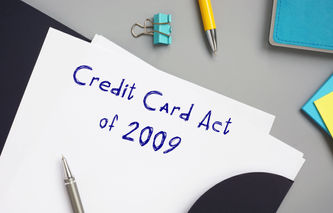The purpose of the Fair Credit Reporting Act, or FCRA, was to establish the ground rules for consumer credit reporting agencies. These rules allow agencies to fulfill their role as suppliers of credit information to the commerce market, while at the same time protect the privacy and rights of consumers. The intention of the FCRA is to be fair to consumers, while making sure the reports are as accurate as possible. In this article, we'll discuss the structure of credit reports, their accuracy, privacy protections, and how to remove outdated information from a credit report.
Consumer Credit Reports
Whenever someone applies for a credit card, a personal loan, insurance, or even a job, there is a very good chance a copy of their credit file was requested as part of that process. That report contains more than just payment history. It can include information such as past lawsuits, arrest records, and whether or not an individual has filed for bankruptcy. All of this information can help predict the risk of nonpayment someone presents to a potential creditor or lending institution. The companies gathering and reporting this information are known as credit reporting agencies or credit bureaus. There are three major companies that collect this data: Equifax, Experian, and TransUnion. Perhaps the most important source of revenues for these companies is selling consumer credit reports to potential lenders, employers, and other businesses.
Accuracy of Credit Reports
One of the essential roles of the Fair Credit Reporting Act was to ensure the accuracy of the information contained in these reports. Recent amendments to the FCRA now place the burden on reporting agencies to ensure the accuracy of the data they are compiling. The businesses that use these reports also have several responsibilities.
Protecting Privacy
To protect the privacy of consumers, the FCRA has outlined only three ways that a reporting agency can furnish a credit report to anyone.
In response to a court order or subpoena.
In response to the written instructions of the consumer.
To a person or business that intends to use this information to extend credit to the consumer, potential employers, in the underwriting of insurance, eligibility for a license (that pertains to a financial responsibility), or an otherwise legitimate business transaction involving the consumer.
Removing Information from Reports
Additional Resources
To be fair to consumers, the FCRA also outlines rules for removing of obsolete information from credit reports. Essentially, this is old information about the person's past payment history that may not currently apply. The types of information that need to be removed and the timelines for removal include:
When applying for credit, a loan insurance, or a job, a credit file may be pulled, which contains payment history, past lawsuits, arrest records, and bankruptcy filing.Moneyzine Editor
Chapter 11 bankruptcy filings that occurred more than ten years ago.
Lawsuits or judgments against the consumer that happened more than seven years ago.
Paid tax liens that are more than seven years old.
Accounts that were placed in collections more than seven years ago.
Records of arrest, indictment, or conviction of a crime more than seven years after the date of disposition, parole, or release.
Any other piece of information that would negatively reflect on the consumer's ability to obtain credit that is more than seven years old.
There are three circumstances that serve as exceptions to the rules outlined above. The above information can still be reported after these dates if the consumer:
Requests credit involving $50,000 or more.
Is involved with the underwriting of life insurance of $50,000 or more.
Seeks employment where the salary is expected to be $20,000 or more annually.
Free Credit Reports
The FCRA also changed the way that credit bureaus could charge consumers for reports. Consumers are now entitled to a free credit report every 12 months from each of the three agencies. In addition, consumers can also obtain a free report if any company has taken "adverse" action against them in the past 60 days. For example, an adverse action might be a credit card company that denies the applicant credit. If that happens, they have 60 days to request a free copy of their report. This topic is discussed at length in our article: Free Credit Reports.
Credit Scores versus Reports
As part of their service to the commerce industry, all three bureaus have developed proprietary credit scores, typically based on FICO by Fair Isaac. These numerical scores help companies make faster decisions to extend someone credit, or require deposits for service. For example, an electric company might do a quick credit check when a new customer requests electric service. If their credit score is below a certain threshold, they will likely ask for a deposit. Credit bureaus are not obligated to provide credit scores. Consumers that want to obtain this information will have to pay a small fee of around $10 to $20.
Accuracy of Credit Information
Under the law, all credit reporting agencies are responsible for correcting inaccurate information appearing in their reports. If inaccurate information is found, the following six steps outline a process for correcting the report:
Contact the Credit Reporting Agency and explain to them, in writing, about the information that is incorrect. Attach a copy of the report and any backup documentation. Be specific when referring to the item(s) believed to be incorrect.
At the same time, contact the creditor or information provider, in writing, notifying them the accuracy of an item on the report is in dispute.
The agency is now obligated to investigate all items in question within 30 days, unless they consider the dispute to be frivolous. The agency is also required to forward all information to the provider of the disputed information. The provider must then deliver a written response to the agency outlining their findings.
If the information in dispute is found to be incorrect, the company providing that information is obligated to contact all reporting agencies to correct the error.
After the investigation has been completed, the agency must provide a written summary of their findings and a free copy of the report if the dispute results in a change to the report. The agency will also provide the name and address of the provider of the inaccurate information.
If after the investigation the reporting agency refuses to correct an error on a report, it's possible to request them to include a statement of the dispute or error. Each report contains an information field that offers the consumer a chance to explain why they believe an error still exists on their credit report.
Contacting Credit Bureaus
The mailing address and toll free telephone number for each of the three agencies appears below, as well as links to their websites: Equifax P.O. Box 740241Atlanta, GA 30348Toll-Free Number: 1-866 349-5191 Experian P.O. Box 9532Allen, TX 75013Toll-Free Number: 1-888-EXPERIAN (888-397-3742) TransUnion P.O. Box 1000 Chester, PA 19022 (800) 916-8800


